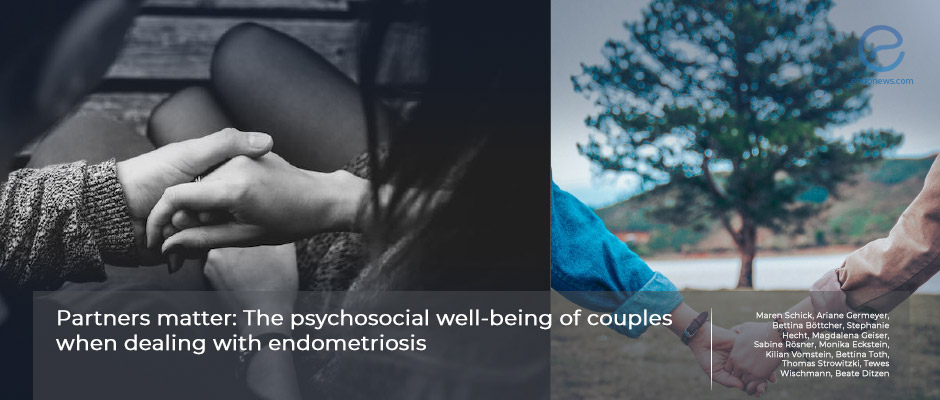How do the couples feel when dealing with endometriosis?
Oct 14, 2022
The psychosocial status of the couples is altered when trying to cope with the disease, study finds
Key Points
Highlight:
- The negative effects of endometriosis on the psychosocial well-being of couples should not be overlooked.
Importance:
- Endometriosis has an impact on the partner’s life as well as the patient’s.
- Evaluating couples' relationship dynamics is important in bringing out the unseen problems they may be facing.
What’s done here:
- This is an exploratory, quantitative cross-sectional study aiming to examine how partners affect each other when dealing with endometriosis.
- 144 patients with endometriosis and their partners were asked to take questionnaires that assessed psychological distress, sexual satisfaction, partnership satisfaction, and social support dimensions.
Key results:
- Significantly higher rates of depression, anxiety, stress, social support, and the impact of endometriosis-related pain (IEP) were detected in women.
- Men’s depression, anxiety, and stress scores were also correlated with the women’s.
- A significant negative partner effect was detected regarding women’s sexual satisfaction and IEP in men.
- Partnership satisfaction did not show any significant effects on the couples.
- The evaluation of women’s lack of social understanding was correlated with higher rates of men’s IEP.
Strengths and Limitations:
- The results of this study extend the existing literature in many psychosocial aspects.
- It examines a broad clinical picture with high external validity.
- The number of participating men was high.
- Endometriosis was clinically confirmed by laparoscopy.
- Limitations included the cross-sectional study design limiting conclusions on causal relationships or possible changes over time in the interaction between couples, information being mostly obtained via self-report measures, generalization of findings being limited to couples who attended treatment in a university hospital setting, and a possibility of a study bias because the partners were addressed at the same time.
Lay Summary
The effects of endometriosis on the patients' psychosocial well-being are well known. However, not many studies have investigated how it impacts the well-being of partners and couples. A few studies focused on the male perspective of the disease, whereas some of them investigated the sexual functioning of male partners. The burden endometriosis brings to a relationship is an important matter to explore and it has not been studied widely.
With the aim of examining how partners affect each other in dealing with endometriosis, Maren et al. from Germany and Austria conducted an exploratory, quantitative cross-sectional study in which they evaluated the impact from the points of four different variables: psychological distress, sexual satisfaction, partnership satisfaction, and social support. The article was published in the May 2022 issue of the journal Health and Quality of Life Outcomes.
A total of 104 couples with clinically proven endometriosis in women participated in the study. Questionnaires were performed and the results were statistically analyzed. Women showed significantly higher rates of depression, anxiety, stress, social support, and the impact of endometriosis-related pain (IEP). Men’s depression, anxiety, and stress scores were also correlated with women’s. A significant negative partner effect was detected regarding women’s sexual satisfaction and IEP in men. However, partnership satisfaction did not show any meaningful effects on the couples. The evaluation of women’s lack of social understanding was correlated with higher rates of men’s IEP meaning that the more couples thought others would not understand what endometriosis meant, the more they were affected by endometriosis-related pain in their lives.
The authors state that the results indicate there is a correlation between psychological stress and having to live with a chronic disease in both the patients and their male partners. Sexual dissatisfaction is also reported in patients with endometriosis and it was found to be related to men’s IEP. It is recommended that the perspective of the partner should also be considered when dealing with this problem. Regarding the social support system, it is shown that the thought of a lack of understanding is one of the main problems for couples, therefore support groups would be a good option. Also, the authors think that raising awareness is needed for these patients to be diagnosed and understood more. They conclude by saying that the feelings of the partner should be taken into account when dealing with endometriosis.
Research Source: https://pubmed.ncbi.nlm.nih.gov/35643578/
endometriosis psychology couple partner

